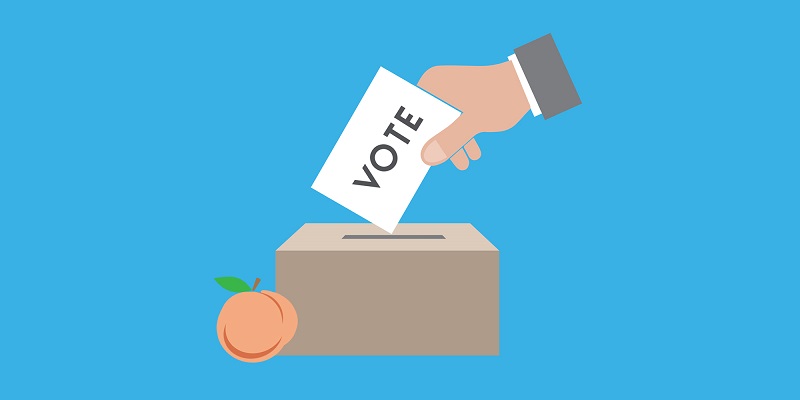

Voting is in progress under the election to the Member of House of Representatives and Province Assembly throughout the country, with enthusiastic voters eagerly queing up at polling centres to exercise their franchise.
However, Gorakh Bahadur Karki of Thakurdwara-9, Bardia district, is not one of these voters who is casting ballot in this election. Instead, he is seen nonchalantly striking a hammer against a rotating cement-mixer, near Singha Durbar, the central government secretariat here in Kathmandu on voting day. Nearby, Karki’s spouse is mixing sand and cement into aggregate, helping him.
It is not that the Karki couple is not aware today’s the voting day. Karki and his wife are among the thousands of eligible voters who have missed voting this time for various reasons. This couple has their names in the electoral roll in Bardia district, so they cannot vote here in Kathmandu. The Karki couple also could not afford to go to Bardia for voting since it has a hand-to-mouth existence.
“We have to work for a square meal a day. If we don’t work, we’ve nothing to eat. We get sound sleep only when we have a decent meal,” said Gorakh. His wife could not agree more with him.
We asked this wage-labour couple working close to the southern gate to Singha Durbar, why didn’t they go to vote?
Their reply: “Our names are registered in the voter list back in our village. We could not vote from here. Nobody asked us to go to Bardia for voting. Had someone asked us for voting, we could’ve gone there (to Bardia) to vote.”
The Karki couple is working at this construction site since the last six months. Their daily earning is around Rs 1,800 to 2,000.
“After bringing them up, our kids are now living separately and this old couple is left toiling for a living,” said Karki with a sigh of frustration.
It is not that he did not want to vote in this election, but for the obtaining circumstance.
The story of Verma Dhami from Kedarsyun rural municipality in Bajhang is similar to those unable to cast ballot under the periodic election. She was seen on the street of Ramshah Path with a loaded bag. She aspired to be in her hometown today for the voting, but it could not materialize due to her personal causes, according to her.
She is a student and living in the central capital. She was back to Kathmandu from her home recently. The economic issue is one of the causes that discouraged her from visiting Bajhang for the elections.
Dhami hoped to find someone else who would support her make a trip to home for the voting, but she could not find anyone.
She is residing at her relative’s place in Putalisadak and was found walking up to Tikathali of Lalitpur for some emergency affairs.
The movement of public vehicles in the Kathmandu Valley was restricted today in view of the sensitivity of the voting.
Sangita Thapa and Sharada Thapa from Ramechhap were inching the route from Bhadrakali to Anamnagar. The couple utilised the time to visit the Bhadrakali temple on election day today as they could not manage their travel to the hometown for the elections.
“We did not make a plan to go to our hometown to vote, bearing in mind the possible discomforts together with our child.”
The EC has banned the movement of vehicles in the Kathmandu Valley from 4:00am to 7:00 pm today for security purposes. However, vehicles owned by the media, Nepal Electricity Authority, meant for drinking water supplies, ambulances and fire engines have been allowed to operate.
The EC updates that the number of voters across the country is 17,988,070 and this figure incorporates the people like the Karki couple who have their names registered in the EC for voting, but could not exercise it due to personal reasons including the economic one.
EC assistant Spokesperson Surya Prasad Aryal, though the Voter Roll Act has identified the Civil Service employees, security persons, inmates and detainees and old age citizens residing in the registered old age home as ‘temporary’ voters, the general people from other sections of life have remained unrecognized by the Act as voters who could their ballots towards the Proportional Representation system.
The international practice is that any person eligible for the voting can cast a ballot from the area where the person is staying continuously from three to six months. But the provision is missing in Nepal and the Election Act should be revised to adjust this provision in the domestic election procedures, Aryal added.